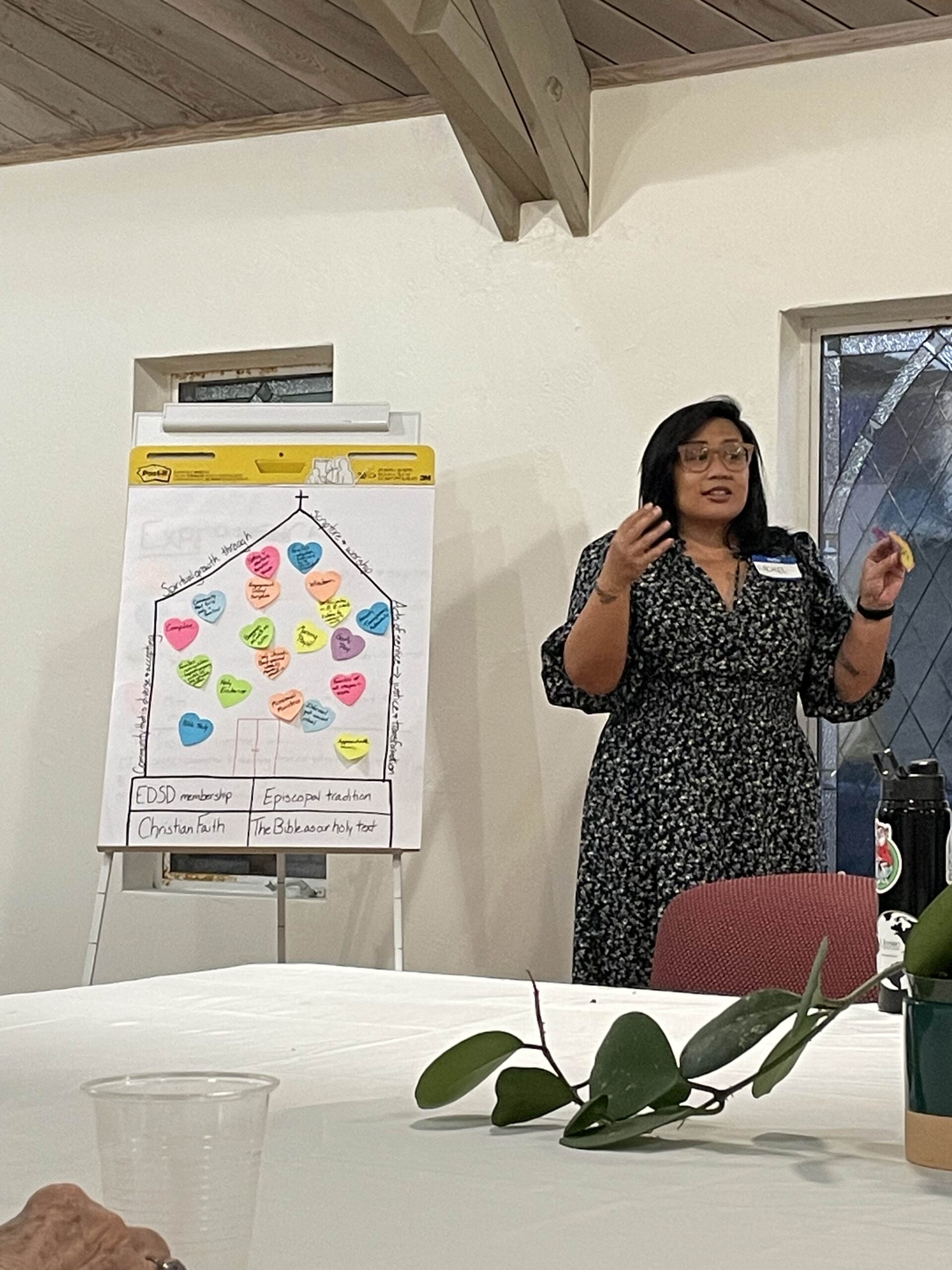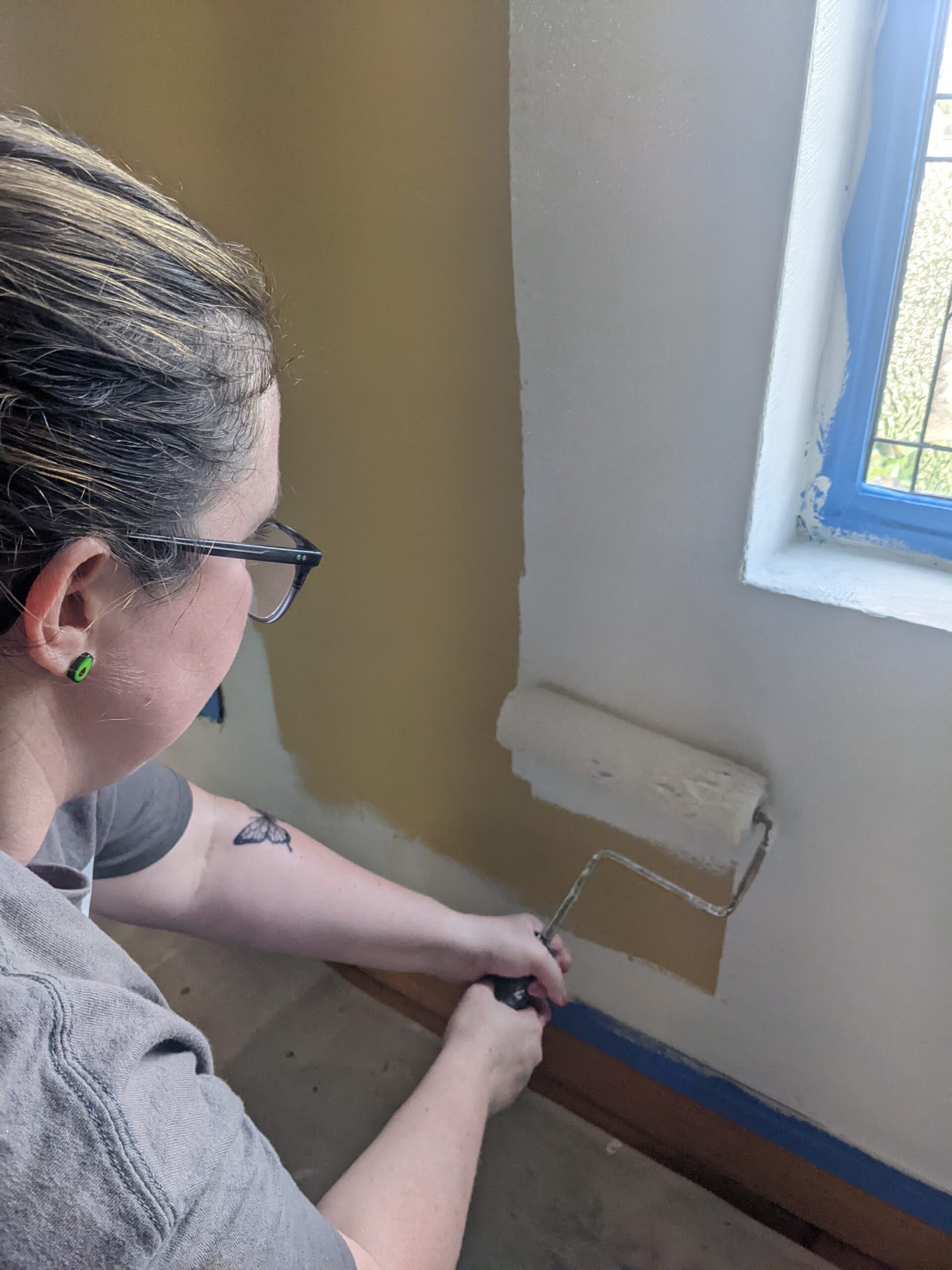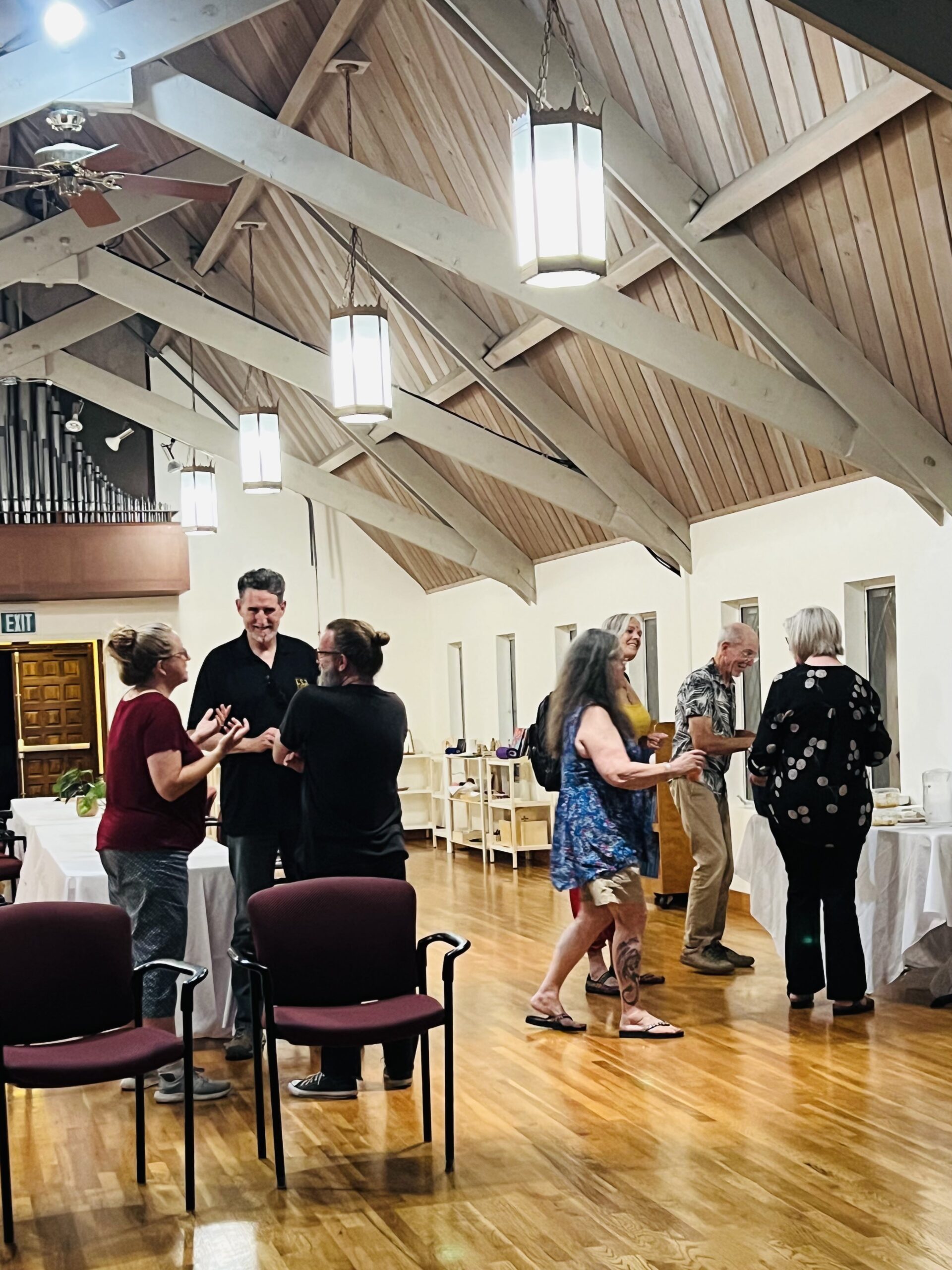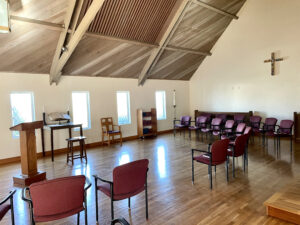Resurrection in Ocean Beach

On September 21, about two dozen individuals assembled in the chapel linked to the Episcopal Church Center (ECC) in Ocean Beach. During this gathering, Rachel Ambasing, the Missioner for Multicultural Ministry, and other diocesan staff reflected on the extensive input they had received from Ocean Beach residents over several months. In the middle of the evening, I had the pleasure of making a happy announcement: Bishop Susan Brown Snook had chosen to name a new faith community for Ocean Beach, Resurrection Episcopal Church, and had appointed Rachel as its lay pastor.
A significant number of those in attendance signed a letter addressed to Bishop Susan, expressing their desire to come under her care as an Emerging Episcopal Community, as stipulated in Diocesan Canon II.2.04(b). This signified many months of discernment and trust-building with the Ocean Beach residents.
 The decline in church attendance is a topic that frequently troubles religious communities. Countless books, products, conferences, and careers have been dedicated to resolving the issue of dwindling congregations. However, I often wonder whether church attendance is the primary concern.
The decline in church attendance is a topic that frequently troubles religious communities. Countless books, products, conferences, and careers have been dedicated to resolving the issue of dwindling congregations. However, I often wonder whether church attendance is the primary concern.
How do we measure trust?
Author Seth Godin shares a story from his visit to Kenya, where he discovered the importance of trust. He learned about an institution that provides micro-finance loans to East African farmers. To qualify for a loan, these farmers need the trust of their neighbors, who vouch for their reliability. In essence, the farmer must have earned the trust of those around them to secure financial support.
People engage when they believe they can trust you. Trust is demonstrated not only through financial contributions but also through the investment of time, attention, presence, and bringing others into the fold—family, friends, and neighbors.
While it may be challenging to quantify trust, one thing is clear: churches can no longer assume they automatically have the trust of their neighbors. This era has passed; trust must now be earned.
Several factors should be considered to earn the trust of neighbors:
- Prioritize the greatest commandment and the great commission in that order. Placing expansion ahead of loving God and neighbors has led to some of the Church’s darkest moments in history. Teaching your community to love God and their neighbors should be the foundation of creating authentic disciples.
- Loving entails listening. Demonstrate a genuine interest in the welfare of others by listening before speaking. Earn the privilege of being heard.
- Be consistent. Whether in the neighborhood, on social media platforms, at school board meetings, or during prayer gatherings, consistently show up and prove your reliability.
To establish Resurrection, simply opening the chapel doors and assuming that neighbors would trust us with their time, attention, and presence was not an option. We had to step outside, get to know the community, listen to their concerns, and earn their trust.
was not an option. We had to step outside, get to know the community, listen to their concerns, and earn their trust.
Even before her election, Bishop Susan envisioned sharing the good news of Christ by expanding Episcopal worshiping communities. Our diocesan strategic plan set a goal to “establish five to eight new church communities” in response to this vision. For the past 18 months, diocesan staff and volunteers engaged in conversations with Ocean Beach residents, shopkeepers, and community leaders to gauge interest in a new faith community.
 Ocean Beach is a young and largely unchurched community. Of the surrounding population, 62.6% are not involved in a religious community. Among those who identify as Christians, only 35.3% believe church participation is essential. The largest age group in the community comprises those aged 35 to 54, with an average age of 39. Over the next decade, the 18 to 24 age group is expected to experience the most significant growth (3.2%), while family households are projected to increase by 5.8% in the next three years.
Ocean Beach is a young and largely unchurched community. Of the surrounding population, 62.6% are not involved in a religious community. Among those who identify as Christians, only 35.3% believe church participation is essential. The largest age group in the community comprises those aged 35 to 54, with an average age of 39. Over the next decade, the 18 to 24 age group is expected to experience the most significant growth (3.2%), while family households are projected to increase by 5.8% in the next three years.
After conducting community surveys, the ECC chapel was refurbished, addressing necessary repairs and giving it a fresh look. We also sought support from our closest Episcopal neighbors, who encouraged our efforts and held our emergent community in prayer. Throughout the summer, an anchoring group including Rachel, the Rev. Peter Sickels, and others engaged with Ocean Beach residents who care deeply about their community. We invited neighbors into the ECC chapel, where we listened to their voices and sought to discern the next steps for this space. We engaged in conversations, lit candles, enjoyed meals, and concluded each evening with Compline. As the summer breeze swept through the building, we began to sense that the Spirit was up to something new.
We learned about the concerns and celebrations of our neighbors in this unique coastal community of San Diego. They aspired to a community where everyone was welcome, regardless of their family structure. They hoped for a safe yet innovative place. They longed for something both informal and steeped in tradition. They had ambitions for acts of service that could lead to justice and transformation.
where everyone was welcome, regardless of their family structure. They hoped for a safe yet innovative place. They longed for something both informal and steeped in tradition. They had ambitions for acts of service that could lead to justice and transformation.
We also heard from community members about the complicated history of the Episcopal Church in Ocean Beach. As such, the name of our community, Resurrection, acknowledges the Christian hope that even when death is evident–such as the death of a community–we believe in the hope of new life through Jesus Christ.
In the coming months, Resurrection will initiate missional ministries, which are small group expressions of our community aimed at connecting with those who might not attend regular church gatherings. Resurrection will hold three monthly worship gatherings on the first Sundays of October, November, and December. On October 1, Bishop Susan will join Resurrection to commission Rachel Ambasing as the lay pastor of the community. A simple soup meal will be available at 6:00 p.m., followed by worship at 6:30 p.m. In the new year, Resurrection will start weekly worship services on Sunday evenings.